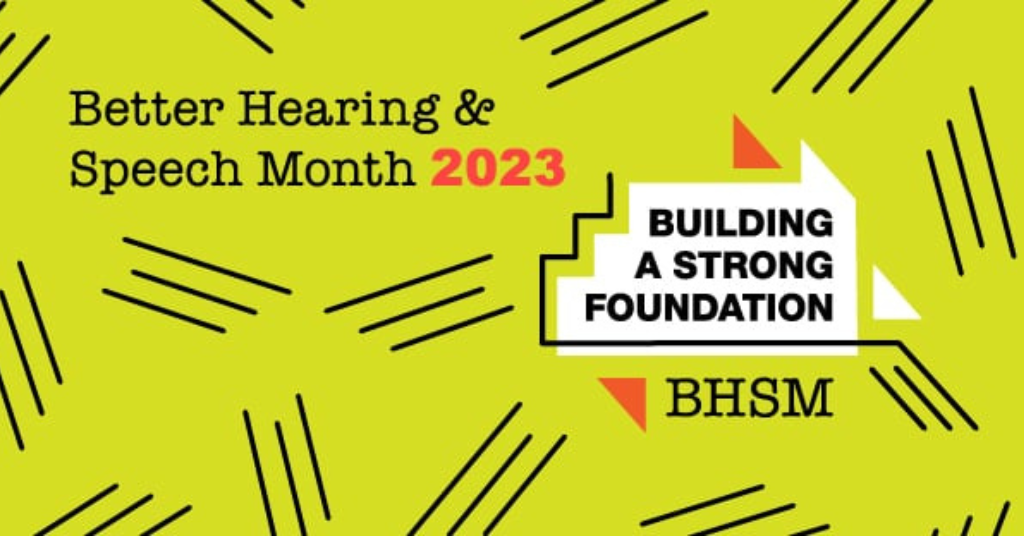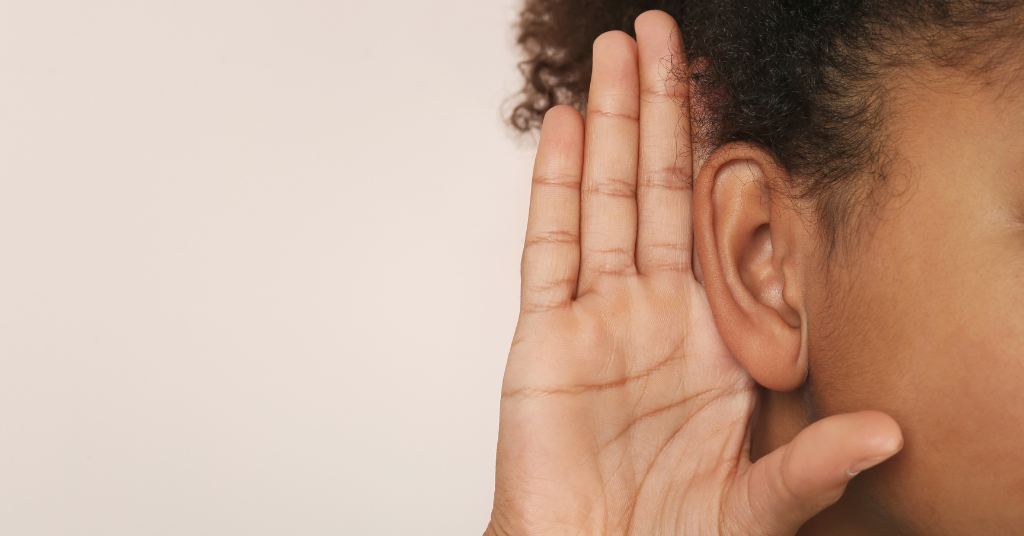
How hearing aids help Dustin communicate during COVID-19 pandemic
June 2, 2020
Hearing Dogs: A service dog for people with hearing loss
June 3, 2020Sudden Sensorineural Hearing Loss: Causes, diagnosis and treatment

Any health crisis can happen suddenly. Some can be more deadly than others, such as strokes and heart attacks.
Fortunately, in many cases, there are protocols to address these conditions when they happen or soon after to minimize any long-term effects. But for sheer terror, Sudden Sensorineural Hearing Loss (SSHL) – also known as Sudden Onset Hearing Loss or Sudden Deafness – might be the scariest thing of all for those who have experienced it.
Many in the hearing health community now say that when sudden onset hearing loss does strike, it’s a medical emergency that needs immediate attention. Too often we wait too long to get help when treatments may no longer be effective. While it may not be a matter of life and death to some, the loss of hearing alters lives, livelihoods, relationships, earnings and more in the short-term and often, permanently.
Why has Sudden Sensorineural Hearing Loss (SSHL) not been addressed sooner?
Most of us have become educated about the warning signs of stroke, heart attack, and other illnesses. And in order to hold off or treat those conditions, we’ve been advised to watch our diet, exercise more, control our cholesterol and blood pressure, perhaps take baby aspirin, or other medications. But what about SSHL? Are there warning signs? Which protocols should you follow if you should experience SSHL? What are the treatments to resolve SSHL? And is there agreement about these questions in the medical community?
“Every year, about 8,000 people in the US experience sudden onset hearing loss,” according to Healthy Hearing and the American Hearing Research Foundation. “That number, of course, does not include those cases that go unreported and undiagnosed. Nine out of 10 occurrences of SSHL is in one ear only, but sudden bilateral hearing loss also happens. Men and women are affected equally. The average age of first occurrence is mid-40’s to mid-50’s, with an increasing incidence with age. Tinnitus is reported in roughly 40% of cases. SSHL accounts for 1% of all sensorineural hearing loss cases.”
What Causes Sudden Sensorineural Hearing Loss?
A cause for SSHL can be identified in only 10 to 15 percent of diagnosed cases. Some possible known causes include:
Tumors (e.g. acoustic neuroma), Neurologic diseases or disorders (e.g. multiple sclerosis), Bacterial infections, Head injury or trauma, Inner ear disorders (e.g. Meniere’s), Autoimmune diseases (e.g. rheumatoid arthritis), Ototoxic medications, Circulation issues (e.g. vasculitis) plus other inner ear problems like Meniere’s disease. But in most cases, the cause of sudden hearing loss remains idiopathic (i.e. unknown.)
One Common Theory
The cause of SSHL could be a viral infection of the hearing nerve. The swelling that occurs in the affected nerve causes it to effectively become strangled in the narrow, bony canal that leads to the ear (the internal auditory canal). If it stays in that state for too long, the nerve dies.
Are there warning signs for SSHL?
SSHL doesn’t always show up in the same way. Some people assume they are suffering from allergies, earwax blockage, or sinus infection. Some describe noticing hearing loss instantaneously in the morning while others report that it rapidly developed over a period of hours or days. In either case, they notice that their hearing is different. Others don’t notice a difference until they hold the phone up to that particular ear or try to listen to headphones. In some cases, SSHL is preceded by a very noticeable and alarming “pop.” After an occurrence, some report a feeling of fullness in the affected ear or a strange feeling on that side of the head, accompanied by tinnitus and dizziness. The severity of the hearing loss varies from one person to another.
How is Sudden Hearing Loss Diagnosed?
If you suspect you might have SSHL, the first step is to make an appointment with a hearing healthcare professional. Here again, the experience with your Otolaryngologist will differ depending on many things. You may have a history taken and a physical examination that looks for potential infections, diseases or exposure to ototoxic medications.
You may be asked if you have been noticing a gradual decline in your hearing. An audiogram representing SSHL shows a hearing loss of at least 30 decibels in at least three connected frequencies occurring over a period of 72 hours or less. You may have blood work done to rule out potentially systemic causes of SSHL. This includes syphilis, Lyme disease, metabolic, autoimmune, and circulatory disorders. Polysomnography and/or magnetic resonance imaging (MRI) might be recommended to rule out a tumor (acoustic neuroma) which is reported in up to 15 percent of patients with sudden hearing loss
How is Sudden Hearing Loss Treated?
It’s very important to seek immediate treatment, as the window of time during that hearing can be saved is very narrow. Making the wrong assumptions without getting medical guidance can be a tragic mistake. Yet most people do not get treatment right away.
That said, due to the absence of definite cause, there is presently only a limited ability to determine what the optimal treatment for SSHL might be. Those that exist are controversial. Nevertheless 85 percent of those who receive prompt medical attention regain some or all of their hearing. Over the years, treatments have included systemic steroids, antiviral medications, vasodilators, and no treatment at all. The no-treatment option was based on the high reported rate of spontaneous recovery up to two-third of cases.
Corticosteroids are the most common treatment for SSHL. They work by helping the body fight illness, decreasing swelling, and reducing inflammation. Usually administered in pill form, the steroids can also be given through an injection behind the eardrum for those who are unable to take oral steroids. Oral corticosteroid therapy is among the few treatment modalities that have gained acceptance and proved to be effective in selected studies.
What to do
Although spontaneous recovery of all or some of your hearing within one to two weeks is possible, seek treatment as soon as possible. And there are many ways to protect your hearing before things go bad.
The Darker Ages
For reference, here was my experience with SSHL beginning in 1978. Ever since I have tried to trace back the circumstances that may have preceded it. At that time, SSHL was not considered a medical emergency or rather was not highly promoted as one. That year, at the age of 29, I experienced SSHL in my left ear with all the attending symptoms, fullness, pain, tinnitus, and vertigo. My first bout started with a loud roar in the left ear, like an air horn, and I fell over to my left.
I then noticed problems on the phone when I could not comprehend what was being said into that ear. I visited my GP who sent me to an ENT but my hearing was gone within 48 hours. Nothing more was recommended and no tests were done. I was not even advised to get a hearing aid at that point nor was I made aware of any other treatment options that I might consider.
Eighteen months later, at age of 31, I experienced the exact same sudden roar and sensations in my right ear. Vertigo and tinnitus were also present. Within days I met with several doctors and finally with an ENT in New York City who put me on prednisone, niacin, and a combination of calcium and fluoride. I had polysomnography conducted to rule out tumors. It did.
I don’t remember getting a full examination or having blood work done to rule out systemic causes. No other medications or treatments were prescribed and an actual cause was never found. The only source of further research was being asked if my mother had syphilis during her pregnancy with me. She did not.
Living with SSHL
At this point with both ears gone, I was advised to get a hearing aid for the better (right) ear. I do believe the steroid and other supplements at very least cooled down whatever was happening. But my hearing stabilized at a very low point just good enough for me to start wearing a hearing aid. No other rehabilitation aural or otherwise was recommended. I’ve had hearing in one ear and tinnitus in both ears for 38 years.
As I have written about here in order to try to maintain the hearing that I have, soon after my experiences with SSHL I started my own course of personal hearing healthcare management – along with ongoing consultation with my doctor.
Have you experienced sudden hearing loss? Did you receive treatment right away? Did that treatment stabilize your hearing?
Please alert your friends and family to what we now know is a serious medical emergency. Tell them not to wait if they experience a sudden drop in their hearing or other related symptoms. It may make a lifelong difference to them and those they love.



